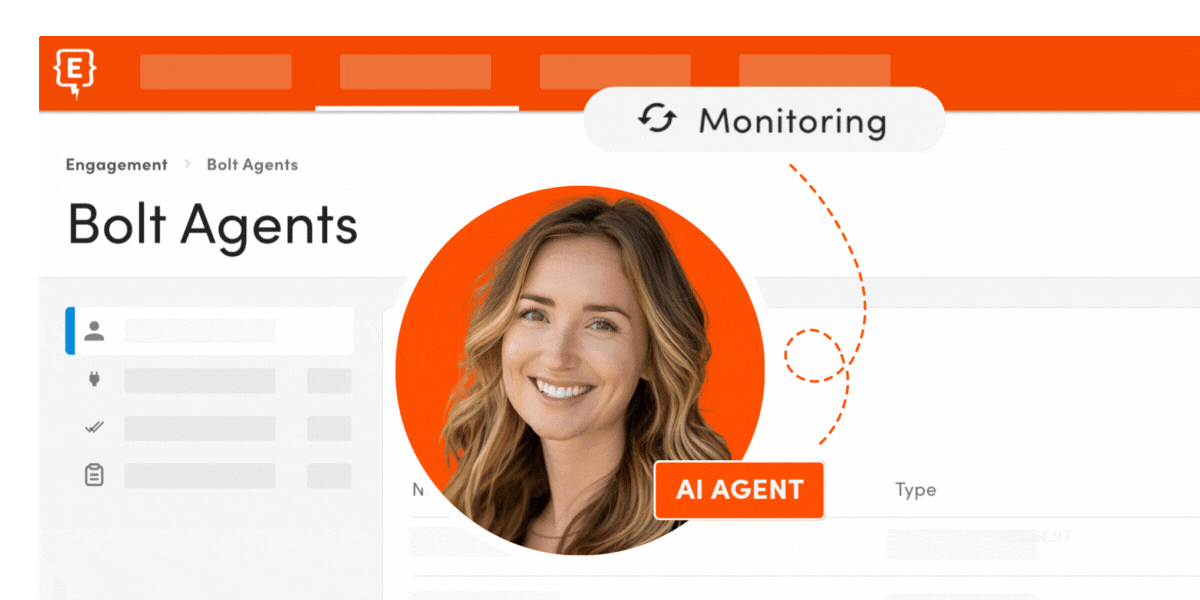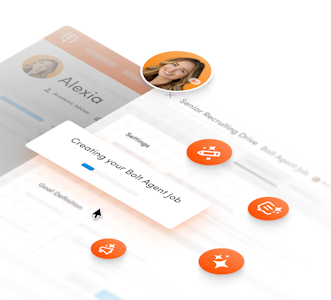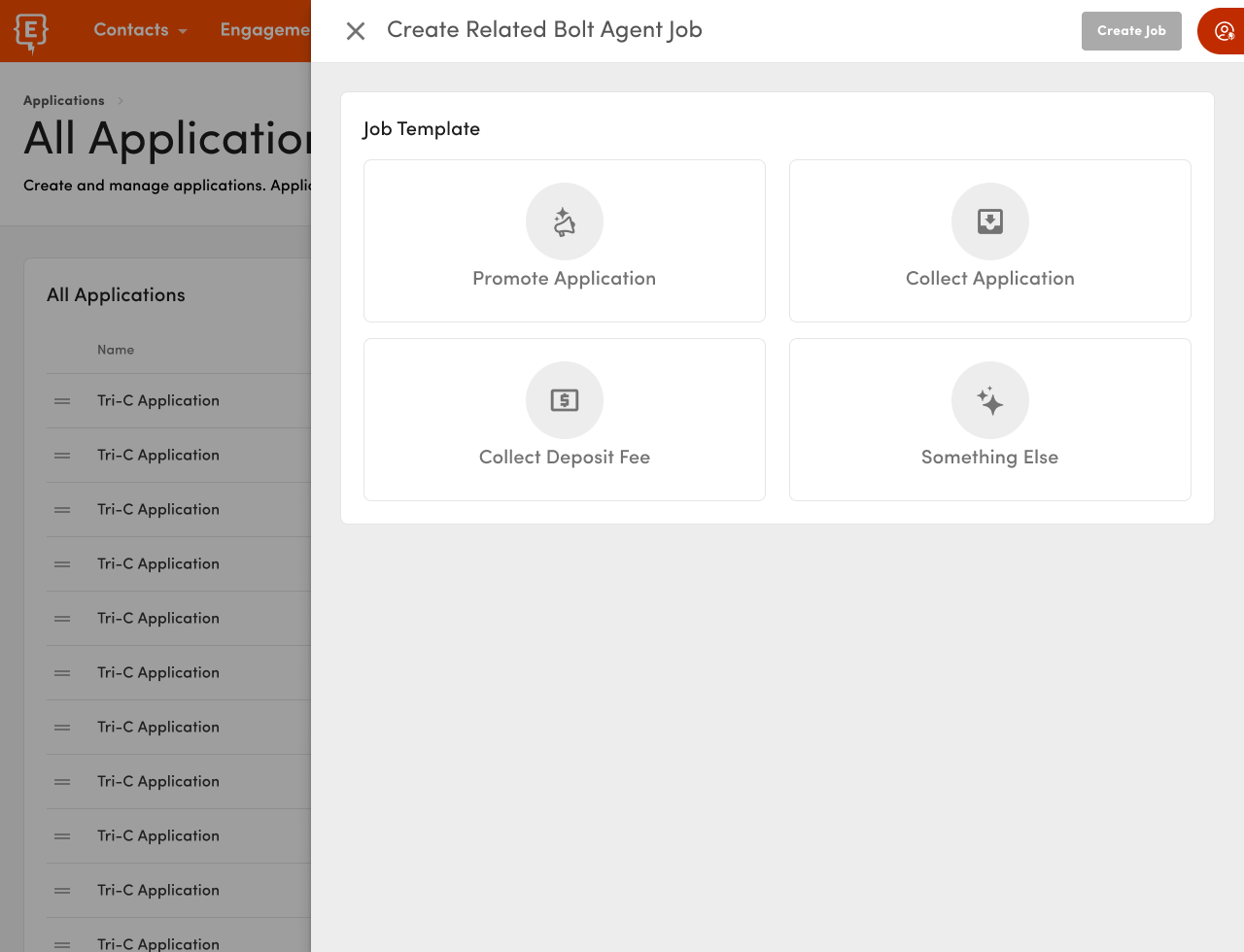How Colleges Use AI Agents to Recruit High School Seniors
by Erin Newton · Updated Sep 18, 2025

What is senior search and why is it changing?
Senior search is the outreach colleges conduct to recruit high school seniors into the admissions funnel. It traditionally involves buying lists of students from sources like College Board or ACT, sending direct mail or email campaigns, hosting events, and encouraging students to apply.
For decades, senior search has been a staple of admissions marketing. But today, several factors make traditional methods less effective:
- Fewer high school graduates. The Western Interstate Commission for Higher Education (WICHE) projects that the number of U.S. high school graduates will peak in 2025 before declining for more than a decade (WICHE). This demographic cliff means every prospective student matters more.
- Rising competition. The NACAC 2023 State of College Admission Report shows institutions increasingly rely on purchased lists and digital outreach, leading to crowded inboxes and diluted impact.
- Higher expectations. Research from Ruffalo Noel Levitz (RNL) finds that 83% of students expect responses within minutes, and 73% say personalization strongly influences their enrollment decision (RNL).
- Flat staffing. Even as applications rise, admissions offices are not adding staff at the same pace. Teams must do more with fewer resources (NACAC).
Put simply: senior search as it was designed in the 1990s and 2000s no longer meets today’s realities.
How do AI agents help colleges recruit high school seniors?
AI agents are not simple chatbots or automation scripts. They are digital teammates that can reason, act, and adapt. In senior search, they:
- Work across channels. They engage via email, text, and chat simultaneously.
- Respond instantly. They operate 24/7, in multiple languages, meeting student expectations for immediacy.
- Act proactively. Unlike chatbots, they don’t wait for a student question. They send nudges, reminders, and encouragement based on where a student is in the process.
- Reduce staff burden. By handling repetitive outreach, they allow admissions counselors to focus on building relationships with students most likely to enroll.
Instead of functioning as “tools,” AI agents behave like teammates, continuously moving students forward in the funnel.
What type of content works best in senior search campaigns with AI agents?
At its core, senior search is about content that connects. But the type of content that works best when powered by AI agents goes beyond generic email blasts. It needs to match both student needs and campaign goals.
1. Informational Content
This is the “need-to-know” information that ensures students don’t miss critical steps.
- Application deadlines.
- FAFSA filing dates.
- Required materials (transcripts, recommendations, essays).
- How to set up a student portal.
Example: “Hi Jordan, your application is almost complete! The deadline is two weeks away—don’t forget to upload your transcript.”
2. Motivational Content
This type inspires students and builds confidence in their decision to apply.
- Stories of current students or alumni.
- Quotes from faculty.
- Campus traditions or highlights.
Example: “Students tell us their favorite thing about campus is the sense of community. Ready to join them? Your application is just one step away.”
3. Transactional Nudges
Short, action-driven messages that move a student forward.
- Event confirmations.
- Deadline reminders.
- Checklist progress updates.
Example: “You’re halfway through your application. Want to finish now? Here’s the link to log back in.”
4. Relational Content
These messages emphasize that the institution sees the student as an individual.
- Use of the student’s intended major.
- Geographic tie-ins (“As a North Carolina student, you may qualify for…”).
- Personalized counselor introductions.
Example: “Hi Maya, as a future engineering major, you may be interested in our robotics lab. Here’s a link to explore.”
What measurable results do colleges see when using AI agents?
Colleges adopting AI agents for senior search are seeing tangible gains:
- Southeastern University saved 13,758 minutes of staff time in one month—equal to 957 workdays. Its AI agent, “Cora,” sent 6–7 proactive nudges per student, accelerating conversions and consolidating tools like Salesforce and HubSpot into a single system.
- University of Valley Forge streamlined admissions and athletics recruiting with Element451, creating a more cohesive applicant experience.
- Forsyth Technical Community College achieved a 31% conversion rate from prospect to applicant, far above industry norms. Timely nudges from AI agents helped students complete applications.
- Johnston Community College redirected 30,000 minutes of inquiries to AI agent teammates, freeing staff to focus on higher-value advising.
Across partner institutions, AI agents have delivered 7–13% enrollment lifts with no new staff (Element451).
What are the alternatives to using AI agents for senior search?
Colleges can (and do) use other tools, but each has limitations.
- Slate (Technolutions): A robust CRM. Useful as a system of record, but it doesn’t act autonomously. Staff must trigger each step.
- CollegeVine Recruit: A marketplace connecting colleges and students. Limited to its own network and focused only on top-of-funnel exposure.
- Ruffalo Noel Levitz (RNL): Longstanding provider of purchased lists and consulting campaigns. Effective for reach, but expensive and generic.
- Chatbots (Mainstay, fka AdmitHub): Good for FAQs, but reactive only. They don’t nudge students forward.
- Manual outreach: Personal but slow, costly, and unscalable.
How do AI agents make senior search more equitable?
Traditional senior search often misses students who don’t have built-in support systems:
- First-generation students may not know about FAFSA or deadlines.
- Students from rural schools may not get personalized counselor outreach.
- Non-English-speaking families may find communications inaccessible.
AI agents help fill these gaps at the recruitment stage:
- They provide 24/7 answers to common questions, no matter when students ask.
- They communicate in multiple languages, expanding access for families.
- They send proactive nudges about critical steps, reducing missed opportunities.
This ensures more students — not just the well-resourced — have equal opportunity to engage in the admissions process.
What best practices help institutions succeed with AI agents in senior search?
- Set clear goals. Decide what outcomes matter most: boosting applications, event sign-ups, or reducing incomplete apps.
- Segment lists intelligently. Use FAFSA status, intended major, or geography to tailor outreach.
- Balance human + AI. Let agents handle repetitive nudges while staff build high-touch relationships.
Measure and adapt. Track conversion rates, time-to-response, and student engagement. Refine based on results.
FAQ – What are some frequently asked questions about using AI to recruit seniors in high school to college?
What is senior search in admissions?
How is AI used to recruit high school seniors?
How do AI agents differ from chatbots or CRMs?
What results can colleges expect?
What types of content do AI agents use in outreach?
How do AI agents improve equity in admissions?
What are the risks or limitations?
How can colleges start using AI agents?
What is the future of senior search with AI?
The next generation of senior search will move even further beyond static campaigns:
- Predictive outreach: AI will anticipate disengagement and intervene before a student drops off.
- Adaptive campaigns: Messaging will adjust in real time based on student behavior.
- Cross-office coordination: Agents will unify communications across admissions, financial aid, and marketing.
This is where the industry is heading — and colleges that adopt AI now will be ahead of the curve.
Conclusion
Senior search has always been about reaching the right students at the right time. Today, “right time” means right now.
AI agents extend your team, scale outreach, and keep students engaged from inquiry through application. From Southeastern University and the University of Valley Forge to Forsyth Tech and Johnston Community College, institutions of all types are already seeing measurable results.
Explore the Senior Search Playbook to learn how your institution can do the same.
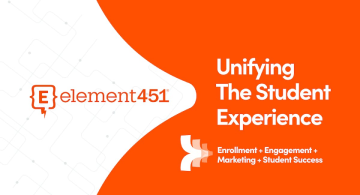
About Element451
Boost enrollment, improve engagement, and support students with an AI-driven CRM and agent platform built for higher ed. Element451 makes personalization scalable and success repeatable.
Categories
New Blog Posts
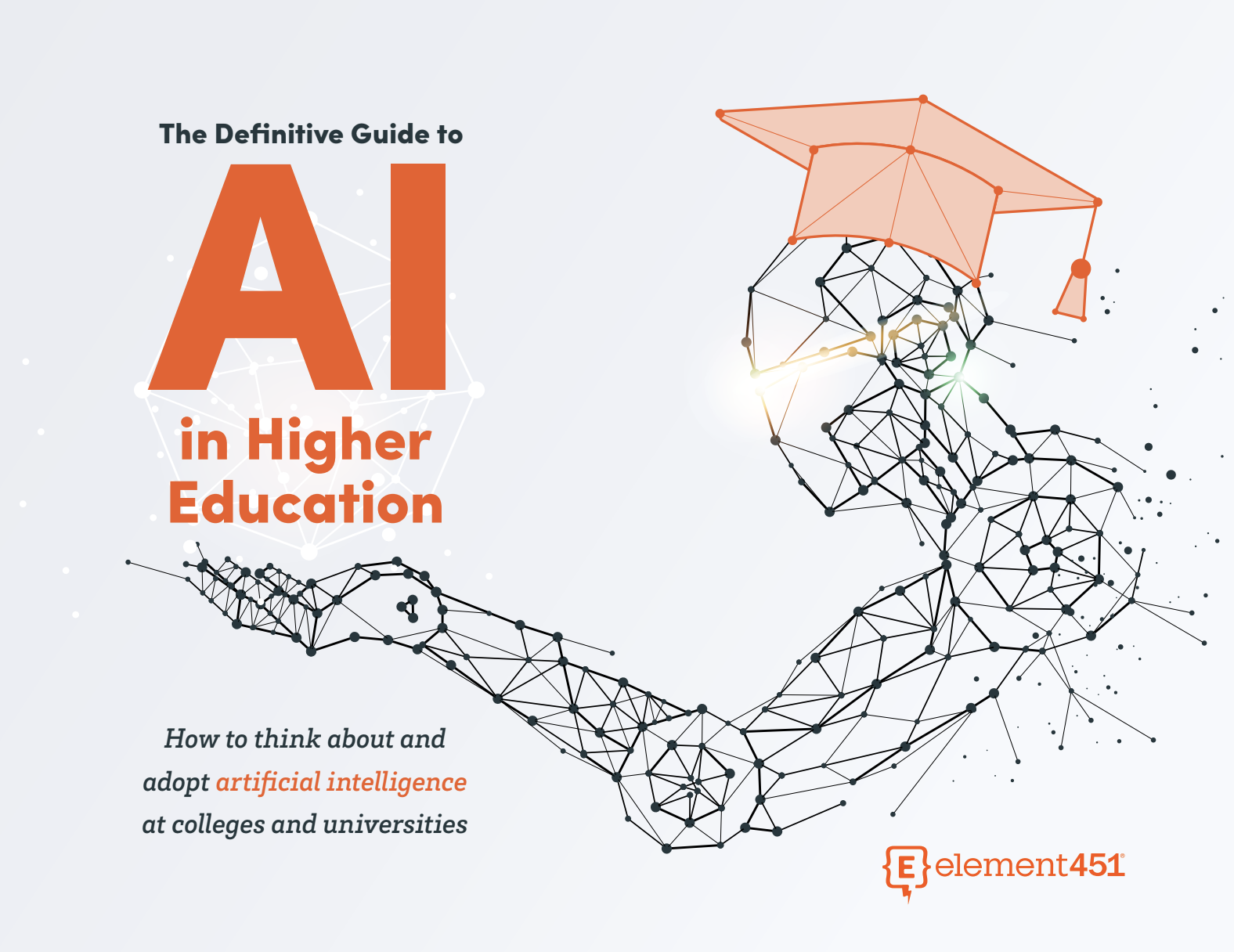
The Definitive Guide
AI in Higher Education
Bridge the gap between the latest tech advancements and your institution's success.
Useful Links

Talk With Us
Element451 is an AI-driven CRM and AI agent platform for higher education. Our friendly experts are here to help you explore how Element451 can improve outcomes for your school and students.
Get a Demo


